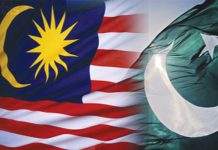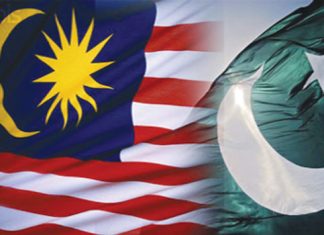In collaboration with the UNDP Pakistan, the Punjab government has initiated the second-generation Sustainable Development Goals (SDGs) Plus project. This project is designed to promote resilient and sustainable economic growth within the province.
An integrated framework anchors the project, focusing on three primary areas: internalizing SDGs, financing for development and climate resilience, and evidence-based social protection, innovation, and inclusive development in Punjab.
The collaboration between the Punjab government and UNDP Pakistan has seen several initiatives over the years. However, challenges such as the 2022 floods and the COVID-19 pandemic have significantly impacted these efforts, particularly in the poorest and most vulnerable districts.
Iftikhar Ali Sahoo, Chairman of the Planning and Development Board, Punjab, and Dr. Samuel Rizk, UNDP Pakistan’s Resident Representative, formalized this partnership by signing a financing agreement for the project at an event held at the board’s AKS auditorium.
The ceremony, moderated by the board’s economic adviser Dr. Amanullah, was attended by key figures including P&D Secretary Muzaffar Khan, Senior Adviser Dr. Hafiz Pasha, UNDP DRR Van Nguyen, and other board members.
The project’s goals include advancing sustainable growth by integrating SDGs into key policy frameworks, such as the medium-term budgetary framework and the Annual Development Programme, aligned with provincial growth strategies and social protection policies. It aims to address regional disparities, and vulnerabilities, and to create more inclusive development pathways at the district level.
Key components of the project involve strengthening the data ecosystem for improved policy-focused data collection and SDG monitoring, leveraging provincial spatial mapping capacity, and utilizing digital technologies.
Citizen engagement is also a focus, with plans for an open data portal, community monitoring capacity building, citizen perception surveys, advocacy, and communication.
The project is said to provide technical support to strengthen public sector financing for SDGs and mobilize private sector finance through innovative climate financing tools. It aims to develop pipelines for bankable projects, strengthen environmental laws and policies, and leverage adaptation and mitigation projects for disaster resilience.
The initiative also plans to foster strategic partnerships with the private sector, UN agencies, development partners, NGOs, academia, think tanks and startups to support institutional processes and leverage local and regional opportunities.
The project will focus on the lagging districts to ensure inclusive economic growth and equitable development, aligning with the 2030 Agenda for Sustainable Development and its central pledge of “Leaving No One Behind”.
Social protection in Punjab, an essential aspect of governance, is still in its early stages. The project aims to generate relevant local evidence to inform forthcoming Punjab social protection and poverty-reduction policies.
























